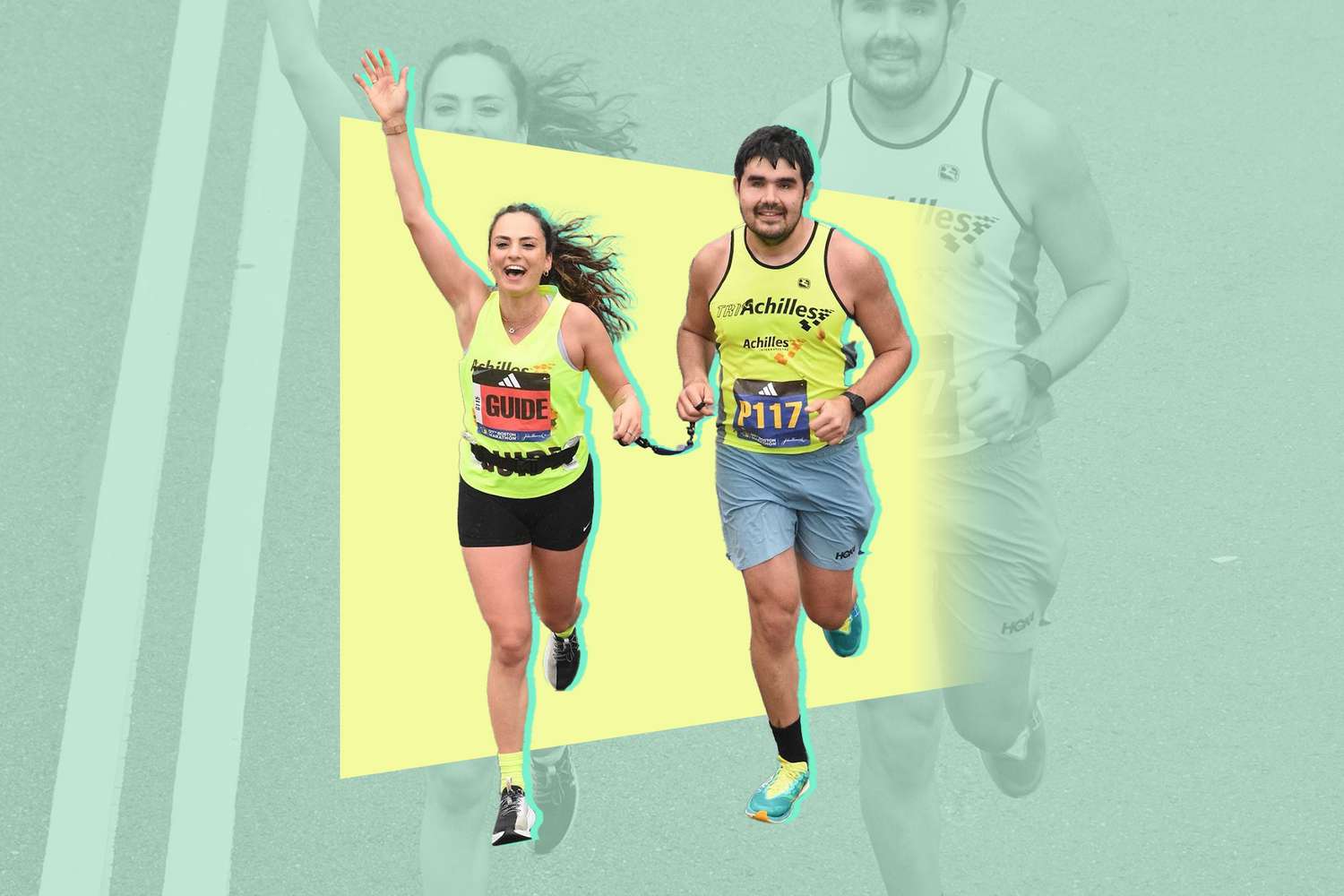Achilles International: Enhancing Accessibility in Running

'Running helped me redefine what I thought was possible,' says Francesco Magisano, director of Achilles NYC Metro Region. Magisano was a freshman in high school when he lost his vision while battling a rare form of eye cancer. Now 28, Magaisano is an elite para-triathlete. One of his top athletic achievements includes completing the 2023 Boston Marathon with the help of an Achilles Guide. 'Whether you are blind like me or live with another disability, there is more to running than just putting on shoes and going out the door,' Magisano tells Shape.
The same goes for similar cardio activities like walking. According to a 2020 study published in Preventive Medicine, people with disabilities have reported facing more environmental barriers when attempting activities like walking than people without disabilities. 'Coordination is needed, especially in New York City,' Magisano says. 'That's where Achilles comes in.'
While his running accolades are part of his personal life, they have also become part of his livelihood. Magisano is the director of the flagship chapter of the fitness organization that serves youth, adults, and veterans with disabilities. Here is what you need to know about Achilles, its benefits, and how it fosters community.
Achilles International is a global organization operating in 18 countries with more than 10,000 members and 4,500 volunteers. The organization aims to break down blocks and empower those with disabilities so they can 'cross the finish line' of endurance events like road races.
'Achilles gave me a world of possibilities,' says Magisano, noting that starting as a member helped him to understand the impact Achilles has on a personal level. That perception, he adds, drives him to move forward to get others out there. 'Through that movement, people are able to change their lives.'
Rummana Aslam, MBBS, a physiatrist and associate professor of orthopedics and rehabilitation at Yale tells Shape that programs like Achilles International provide opportunity for enablement. 'We believe that disability does not mean inability. Everybody with a disability has an opportunity to improve, and programs like this can help devise individualized goals for all individuals with any level of disability. The programs are geared to bring out their unique strengths—and build camaraderie and confidence.'
Achilles International, which was founded in 1983, strives to transform the lives of people with disabilities through athletic programs and social connections. Their focus is on endurance-related exercise.
What's more, the organization welcomes athletes of all ages with disabilities including blindness, deafness, limb loss, multiple sclerosis, cerebral palsy, traumatic brain injury, spinal cord injury, cognitive issues, developmental disability, intellectual disability, and more.
Frequent exercise is important for everyone, especially those with a disability—which includes just over 25% of the adult population, according to the CDC. Regular physical activity can help with quality of life, mental health, weight maintenance, and general health, including the prevention of diseases.
The program matches athletes with volunteers (Achilles Guides) with similar goals—and paces—across the world, welcoming members of all ability levels and all paces. All goals are accepted whether athletes are looking to run their first-ever 5K, walk weekly, run a marathon, or take a ride in the park.
'Athletes can run, walk, or roll,' says Margaret DeJesus, director of communications for Achilles International. 'We also offer adaptive cycling and wheelchair racing in select cities.'
But Achilles does more than just pair athletes with guides. The organization prioritizes fostering community. Magisano explains that while the fitness benefits are excellent, the community is just as important. Achilles Guides aren't just there to support athletes' safety, but they often become trusted teammates and close friends.
'The relationships I build with the people I run with are my favorite,' says Magisano. 'I don't think of guides as volunteers. Many have become my closest friends.' And the partnerships formed benefit both athletes and guides.
Tianna Biscone is an Achilles Guide also based in New York City. For Biscone, building trust—a major factor in a community—is among the most important parts of the role. 'Trust is a major component, I would assume that for a blind runner. It can be unnerving to put your safety entirely in the hands of someone else. It really is a privilege to have someone instill this faith in me as a guide. [It's] not something I ever take for granted.'
Her role as a guide has shifted her definition of success, she tells Shape. 'Guiding has also impacted the way I think about success and achievement. When I'm guiding someone in a race, I get to focus entirely on their goal and do everything I can to help them achieve it—whether that's running a sub-4 hour marathon or simply crossing the [finish] line of a 5k.'
It's more fulfilling, she says, to help someone else do their best as opposed to completing her own races. 'I think it really comes down to the foundational level of trust we share. It makes the experience far more gratifying when we do it as a team.'
Achilles International includes a spread of programs suited for different needs. To break it down:
There are also Achilles Chapter workouts and the group's Hope & Possibility race that is put on in cities around the world. The organization operates in the U.S. and in 17 other countries. Stateside, there are 28 chapters in 19 states and Washington D.C. Abroad there are 34 chapters in 17 countries.
Many people living with disabilities can participate in routine exercise. But if you're new to exercise, the CDC recommends checking in with a healthcare professional to determine what is best for you.




